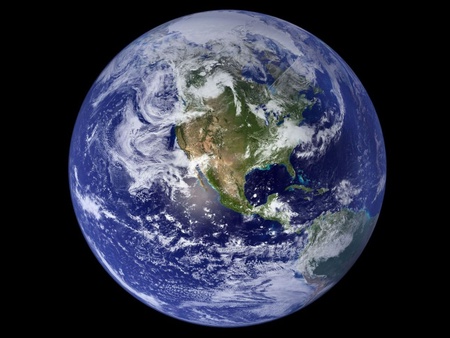The pace of past episodes of climate change is likely to have been underestimated, according to research carried out by scientists at the University of Aberdeen and Friedrich-Alexander University (FAU) in Germany.
In a paper published in Nature Communications, the research team demonstrate how geological archives do not capture the full variability of climate change likely to have occurred in ancient times. The result, they argue, is that maximum rates of climate change in Earth’s history are systematically underestimated.
Dr David Kemp from the University of Aberdeen School of Geosciences is the lead author of the study.
He explained: “Our work shows that rates of temperature change through Earth’s history scale with the timespan over which the changes are measured, meaning that the rates of recorded change are inevitably slower when measured over longer and longer time periods.
“When you look at geological changes in temperature, which can typically only be measured over thousands to tens of thousands of years, you inevitably don't capture the detail and full variability of changes that we know from more modern records occur on much shorter timescales.”
Professor Wolfgang Kiessling, from FAU, adds that rates of warming through ancient episodes of large-scale climate change were probably much quicker than previously thought, perhaps similar to, or exceeding, the pace of warming today.
“Our work emphasises how the geological record biases the data. More recent history shows that significant climate change can occur over short periods of time, and it is these types of relatively short-term events that cannot be resolved from the geological record.”
The team emphasise that their research doesn’t negate present-day concerns over climate change, but rather highlights a gap in our understanding of ancient climate change.
“Our work doesn’t impact on how quickly climate is changing today, but instead it emphasises how the geological record is an imperfect archive of ancient climate behaviour,” explained Kilian Eichenseer, a graduate student on the study team. “Reliably comparing and contrasting ancient and modern climate change is therefore problematic.”
He added: “While there is little doubt that the current rate of climate change is unusual and something that causes understandable concern, caution should be exercised when describing modern changes as unprecedented in the context of Earth’s history, since this doesn’t take into account the clear bias that complicates the assessment of ancient rates of climate change.”


